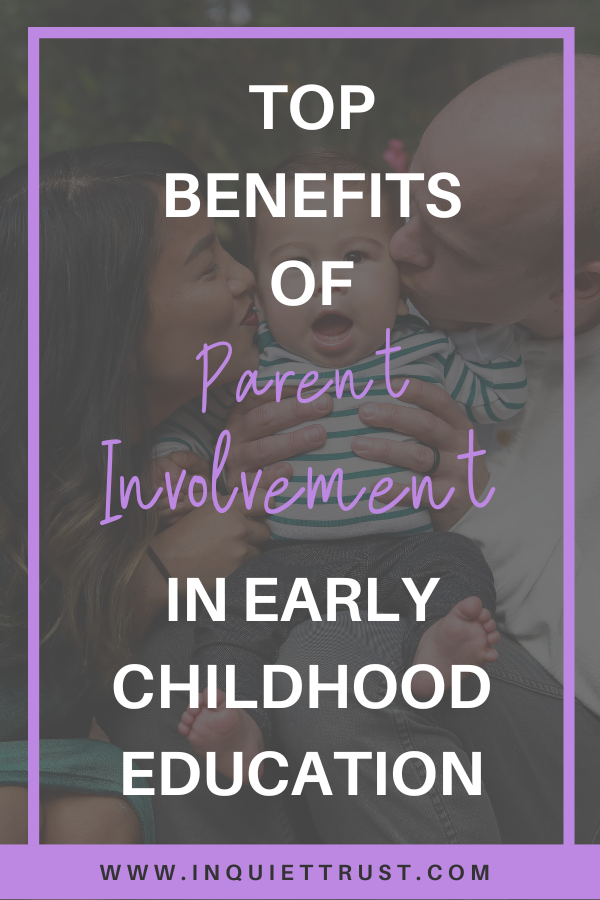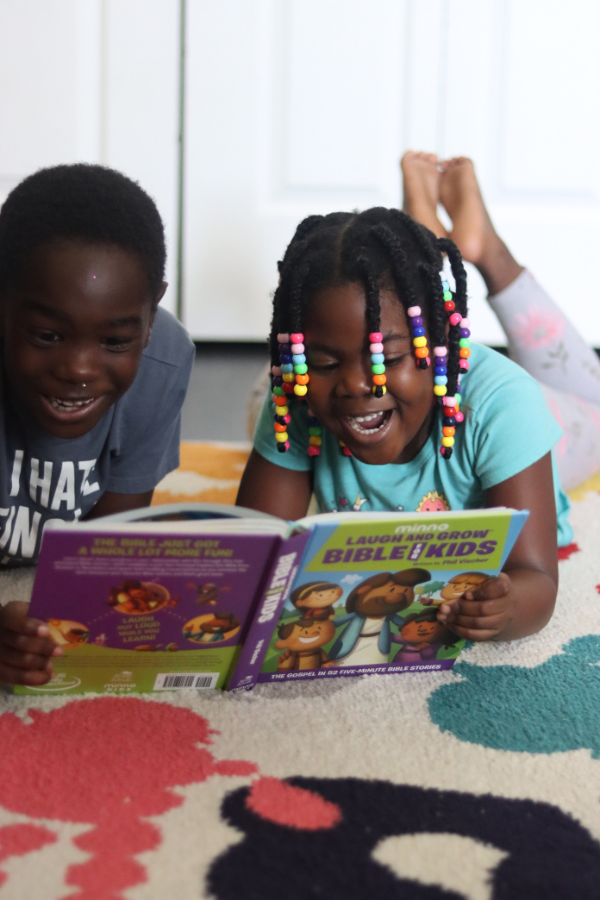Top Benefits of Parent Involvement in Early Childhood Education
What is your first memory of your parents? When you reflect on your childhood, who and what do you remember?
The benefits of parent involvement in early childhood are underrated if you ask me. It is an opportunity to implant yourself in the memory of your child. No wonder the Bible says, Train up a child in the way he should go, and when he is old, he will not depart from it.”
There are many things this scripture explains, but most importantly, it shows how a parent’s involvement in a child’s life can pattern the child’s future. It isn’t only about schooling; it’s also about their future.
Childhood might seem unbearable, but it is a fantastic memory to revisit when you’re all grown. The next time you don’t consider your involvement in your child’s life important, think more about the benefits your child will get from your involvement.
There are several ways parents can get involved in their child’s life because parental involvement in early childhood goes beyond school; it encompasses friendship and life in general.
This blog post will be detailed and tailored for you as a mom to understand why parent involvement in early childhood education is so important.


- Related posts:
- How to Resolve Conflicts between Siblings in a Healthy Way
- How to Build a Fun Bedtime Routine for Kids
- 8 Effects of Negative Peer Pressure on Kids & How to Handle it
What is early childhood education?
Early childhood education involves training a child during their early years of growth. This training can be limited to schooling but can also extend beyond that.
Early childhood usually involves preschool years till sophomore years and perhaps beyond that.
Some would say that early childhood ends at age 10, which is fair, but in my opinion, it is more appropriate that early childhood ends at 12, just before your child becomes a teenager.
To what extent is parent involvement in childhood education?
There is no exact extent to parent involvement in early childhood education and even teenage education. However, parent involvement shouldn’t result from a lack of trust in the educational authorities, as it can result in unnecessary meddling.
Benefits of parent involvement in early childhood education
There are a lot of benefits to getting involved in your children’s early education, and these benefits cut across cognitive development, social skills, and character development.
The significant cognitive growth of a child occurs during their preschool years because the brain absorbs information faster and retains it longer.
Being involved in this early stage of their education means you will be able to have a positive impact on their life outside of school and also expose them to a positive learning experience.
Interacting and stimulating your child to learn can help them improve their problem-solving skills and become more disciplined and focused.
Learning gets more personal for them and you because getting involved in their education means you have an idea of what goes on in their life, which makes you relate better with them at home.
Children with their parents involved in their education generally perform better in school than other kids. Parent involvement ultimately increases their chances of future academic success by setting a healthy academic baseline for their child.
Parent involvement in early childhood education also helps the child to feel loved and cherished. It improves their social skills and allows them to adapt more to their environment and changes.
Being actively involved in your child’s education will help better advocate for them, especially regarding things that directly affect their studies, like improved reading conditions, policies, and better management.
Parent involvement in early childhood education
There are different ways parents can get involved in their children’s early childhood education, and some include:
Choice of school
In deciding on the best choice of an academic institution for your kids, you might want to consider things like distance, buildings, academic records, and teachers.
Provision of the right educational tools
Make sure your kids don’t lack anything needed to have good academic grades. It makes learning fun and exciting for them.
Appreciation & encouragement
Encourage your kids when they do not meet their expectations and appreciate them when they do. This will motivate them to do better and also increase their self-esteem.
Celebrate every milestone without trivializing anyone.
Interaction
Interact with your kids when they return from school, and ask questions about their learning. This act might help you to identify things they have difficulty with and get an insight into how they view school.
Interact with teachers
Discuss with the school teachers to know how your kid is faring at school: their attitude, relationship with other students, and public character.
Active participation
Actively participate in activities in school, including parent meetings and recreational activities. You can also render a helping hand in volunteering events.
Set up events
You can organize educational events and share your expertise with the school children. You can reach out to other parents and collectively organize these events for kids.
Track results
Follow up on the results of your kids in school: homework, continuous assessments, tests, and exams. You can help your child with preparing for these activities.
Challenges of parent involvement in early childhood education
Several issues can arise with parent involvement in childhood education, and some include:
Miscommunication between parents and teachers
Parents and teachers can miscommunicate with each other, especially when their expectations towards each other are not met.
Time issues
For instance, issues related to timing, such as fixing meeting times and events planning, can also be challenging.
- Another challenge is intermeddling with decision-making processes because of bias or lack of understanding.
Let’s Recap
Parent involvement needs to start from early childhood because that is the period of shaping and learning. You get to help your children build the right mindset and belief system.
You also get a front-row seat into how they react and think, informing you on what to encourage and correct in their lives.
Aside from these, you build a strong bond with your child that the things they have learned will stick with them even when they become grown-up.
Did my post convince you to get involved in your child’s life? I hope so.
READ ALSO: Practical tips for parenting a toddler successfully
If you’ve made it this far, I want to thank you for sticking around and reading this post. Leave a comment below to let me know you stopped by. Please be sure to like, pin, and share this post as well! Your support means everything! If you’ve enjoyed this post and want to see more like it, or receive a short weekly devotional, be sure to subscribe to my newsletter below!
[mailerlite_form form_id=1]





One Comment